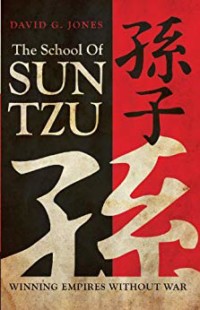Title: The School of Sun Tzu: Winning Empires without Wars
Author: David G. Jones
Publisher: iUniverse
ISBN: 978-1-4697-6911-0
Pages: 448
Genre: Non-Fiction / History / Asia
Reviewed by: Christa Hill
Pacific Book Review
The School of Sun Tzu: Winning Empires without Wars is a semi-academic study of the topic of Sun Tzu. The author is fascinated by the ideas that surround Sun Tzu, whether it is a school or a person. Jones explores some of the deeper concepts touched on in the book The Art of War. Many of the Chinese authors and philosophers that are discussed in this “ship’s log” have developed ideas about the treatment of others and the behaviors of the society.
Jones’ insights and growing perspective throughout the book are interesting and meaningful for those who know very little about Eastern cultures. As a Westerner, Eastern culture is slightly alien to me, which is why this author’s quick unpacking of the elegance and nuance of these differences make this book educational and important.
The work of Ping-Fa is where many of the musings which make up this book stem from. Ping-fa examines the rise of the Chinese Empire and the structures of communication, oppression and transformation. The School of Sun Tzu, which is what this book is born of, which an institution that looks at idea generation and behavior modification.
This book is a thought provoking read that encourages the reader to learn more about the world, to stay informed and to engage with new and different philosophies. It has religious elements, linguistic ponderings and life histories of important Asian people. While David G. Jones mainly focuses on China he also includes smatterings of other Asian countries, such as Japan, which help to lend credibility to many for his notes.
The School of Sun Tzu: Winning Empires without Wars is incredibly well written especially for a self-proclaimed diary. It also centers on a very well known and important book The Art of War, which according to Jones is not truly about war. He looks at methods of starting and winning a war in the time that Ping-Fa would have written, which reveals a lot about certain ways of thinking. I would recommend this work to readers interested in learning more about Eastern Culture, and a behind the scenes look at war and its many moving parts.


